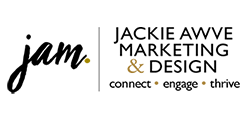Using online marketing strategies saves time and supports business development efforts.
It seems like Business Development professionals are busier than ever. Cultivating leads, developing relationships, putting together proposals and closing deals are time-consuming tasks. We find that many BD’s have to take care of their own marketing as well.
When your time is limited, you have to be strategic to get the most return on your investment of time. Since most buying decisions start with an online research, it’s important to pay attention to the material that people are seeing. It’s becoming an integral part of business development.
Because social media allows you to share information, it’s an excellent way to keep the conversation going and be relevant even when you cannot be physically present. It’s a great way to support your more traditional marketing and business development efforts. The problem is that social media can be a take a lot of time when not done right. So what can you do? Be more strategic.
Know the social media platforms
You’ll find that Facebook, LinkedIn, and Twitter are more than likely the places with the highest concentration of key demographics when you are in the business to business environment. Instagram and Pinterest for consumer driven audiences. What do you need to know about each social platforms different strengths and selling points?
Facebook is the most used social media platform. It is a great place to builds brand loyalty and reputation. You can establish your business as an authority through compelling content and informational posts.
what can it do▪ Reaches a variety of segments of an audience with one post ▪ Offers opportunity to create ads to drive traffic to your website/blog ▪ Encourages dialogue and depth with a customer base ▪ Ideal for sharing personal stories, testimonials, detailed information about your business
LinkedIn is where you will find professionals sharing business-related content. It is a great place to build your authority as an individual and connect with like-minded professionals in related fields.
what can it do ▪ Can be used to provide your business connections with a resume of your experience and areas of expertise ▪ Offers an opportunity to show that you are a resource for information or authority in your field ▪ Excellent tool for research on prospects and competitors ▪ Best platform for business-related social networking
Twitter is the place where you will find breaking news, trends and quick updates, promotes new products, content, or brand contests, collects instant feedback from your audience. It’s also a great place to source information to share on different platforms.
what can it do ▪ Serves people looking for quick info, company news, and immediate response to questions about products or events ▪ Focuses on dialogue creation and starting conversations with customers ▪ While other platforms use hashtags know, the Twitterverse was the first to use hashtag (#) communication functionality▪ Best platform for PR/publicity purposes when traditional media does not respond Know your audience.
Know your target audience.
Develop a buying persona and understand what topics resonate with them. What information are they looking for? The content you share should revolve around that. You should develop a list of keywords and phrases that you can use across all of your communication and marketing. This helps you make sure you are consistent, and your message resonates.
Consider the time commitment.
You should spend at least five to ten minutes a day on each of your social media platforms. It’s a good idea to dedicate a slightly larger block of time weekly or monthly so that you can be more in-depth and plan your efforts. Consistency is essential for results. How often should I post to my social networks?
- Facebook 1-2 times per day or 6 times a week
- LinkedIn 1-2 times per day or 6 times a week
- Twitter 3-4 times a day or 20 times a week
I recently read that the average amount of time spent by small businesses on social media per week is 6 hours as week…and counting. It is easy to get off course or go down a rabbit hole, so it pays to be strategic. For more information on social media marketing strategies.
